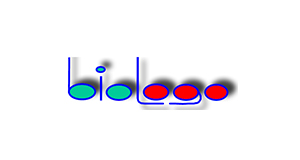p63 Protein (Ab1)
p63 Protein (Ab1), IgG2a, Clone: 4A4
SKU
BILPP1163-1.0
Packaging Unit
1 ml
Manufacturer
BioLogo
Availability:
loading...
Price is loading...
Clone: 4A4
Background: Clone 4A4 binds to all known Isotypes of p63. It is known as an excellent marker of basal cells in squamous epithelia and transitional cell epithelia (localisation of the antigen in cell nuclei). It is well suited for the detection of squamous cell carcinoma. In prostate tissue 80% of basal cells in benign tissue react positive, whereas p63 disappears in prostate carcinoma. The p63 gene is a homologue of the tumour suppressor gene p53. It is highly expressed in nuclei of basal cells, the progenitor cells of many epithelial tissues. It shows up remarkable structural similarities to p53. By alternative splicing at least 6 different isoforms are synthesised, which are different in the C-terminus (alpha, beta, gamma) and in the N-terminus (TA and DN). In mice loss of the p63 gene leads to inability to form basal cells and severe organic deficits. Similar organic failures occur in humans with autosomal dominant EEC-Syndrome, which obviously is related to mutation of the p63 gene. p63 (6 Isotypes).
Positive Control: Normal prostate tissue or skin
Immunogen: Recombinant p63 Protein (AA 1-205) N-terminal part of deltaNp63
References: 1. Yang A., Kaghard M., Wang Y., Gillett E., Fleming M.D., Dötsch V., et al. (1998) p63, a p53 homolog at 3q27-29, encodes multiple products with transactivating, death-inducing, and dominant-negative activities. Mol. Cell. 2; 305-316. 2. Celli J., Duijf P., Hamel B.C.J., Bamshad M., Kramer B., Smith A.P.T., et al. (1999) Heterozygous germline mutations in p53 homolog p63 are the cause of EEC syndrome. Cell 99; 143-153. 3. Signoretti S., Waltregny D., Dilks J., Isaak B., Lin D., Garraway L., et al. (2000) p63 is a prostate basal cell marker and is required for prostate development. Am J. Pathol. 157; 1769-1775. 4. Pelosi G., Pasini F., Stenholm C.O., Pastorino U., Maisonneuve P., Sonzogni A., et al. (2002) p63 immunoreactivity in lung cancer: yet another player in the development of squamous cell carcinomas? J. Pathol. 198; 100-109. 5. Weinstein M.H., Signoretti S., and Loda M. (2002) Diagnostic utility of immunohistochemical staining for p63, a sensitive marker of prostatic basal cells. Mod. Pathol. 15(12); 1302-1308.
Caution: *These antibodies are intended for in vitro research use only. They must not be used for clinical diagnostics and not for in vivo experiments in humans or animals. ** The preservative sodium azide is known to be poisonous and potentially hazardous to health. It should be handled only by trained staff. Despite of the product's low azide concentration it must be handled with care. Dispose according to regional rules!
Background: Clone 4A4 binds to all known Isotypes of p63. It is known as an excellent marker of basal cells in squamous epithelia and transitional cell epithelia (localisation of the antigen in cell nuclei). It is well suited for the detection of squamous cell carcinoma. In prostate tissue 80% of basal cells in benign tissue react positive, whereas p63 disappears in prostate carcinoma. The p63 gene is a homologue of the tumour suppressor gene p53. It is highly expressed in nuclei of basal cells, the progenitor cells of many epithelial tissues. It shows up remarkable structural similarities to p53. By alternative splicing at least 6 different isoforms are synthesised, which are different in the C-terminus (alpha, beta, gamma) and in the N-terminus (TA and DN). In mice loss of the p63 gene leads to inability to form basal cells and severe organic deficits. Similar organic failures occur in humans with autosomal dominant EEC-Syndrome, which obviously is related to mutation of the p63 gene. p63 (6 Isotypes).
Positive Control: Normal prostate tissue or skin
Immunogen: Recombinant p63 Protein (AA 1-205) N-terminal part of deltaNp63
References: 1. Yang A., Kaghard M., Wang Y., Gillett E., Fleming M.D., Dötsch V., et al. (1998) p63, a p53 homolog at 3q27-29, encodes multiple products with transactivating, death-inducing, and dominant-negative activities. Mol. Cell. 2; 305-316. 2. Celli J., Duijf P., Hamel B.C.J., Bamshad M., Kramer B., Smith A.P.T., et al. (1999) Heterozygous germline mutations in p53 homolog p63 are the cause of EEC syndrome. Cell 99; 143-153. 3. Signoretti S., Waltregny D., Dilks J., Isaak B., Lin D., Garraway L., et al. (2000) p63 is a prostate basal cell marker and is required for prostate development. Am J. Pathol. 157; 1769-1775. 4. Pelosi G., Pasini F., Stenholm C.O., Pastorino U., Maisonneuve P., Sonzogni A., et al. (2002) p63 immunoreactivity in lung cancer: yet another player in the development of squamous cell carcinomas? J. Pathol. 198; 100-109. 5. Weinstein M.H., Signoretti S., and Loda M. (2002) Diagnostic utility of immunohistochemical staining for p63, a sensitive marker of prostatic basal cells. Mod. Pathol. 15(12); 1302-1308.
Caution: *These antibodies are intended for in vitro research use only. They must not be used for clinical diagnostics and not for in vivo experiments in humans or animals. ** The preservative sodium azide is known to be poisonous and potentially hazardous to health. It should be handled only by trained staff. Despite of the product's low azide concentration it must be handled with care. Dispose according to regional rules!
| SKU | BILPP1163-1.0 |
|---|---|
| Manufacturer | BioLogo |
| Manufacturer SKU | PP1163-1.0 |
| Package Unit | 1 ml |
| Quantity Unit | STK |
| Reactivity | Human, Mouse (Murine), Rat (Rattus) |
| Clonality | Monoclonal |
| Application | Immunohistochemistry (paraffin) |
| Isotype | IgG2a |
| Host | Mouse |
| Product information (PDF) | Download |
| MSDS (PDF) | Download |

 Deutsch
Deutsch







